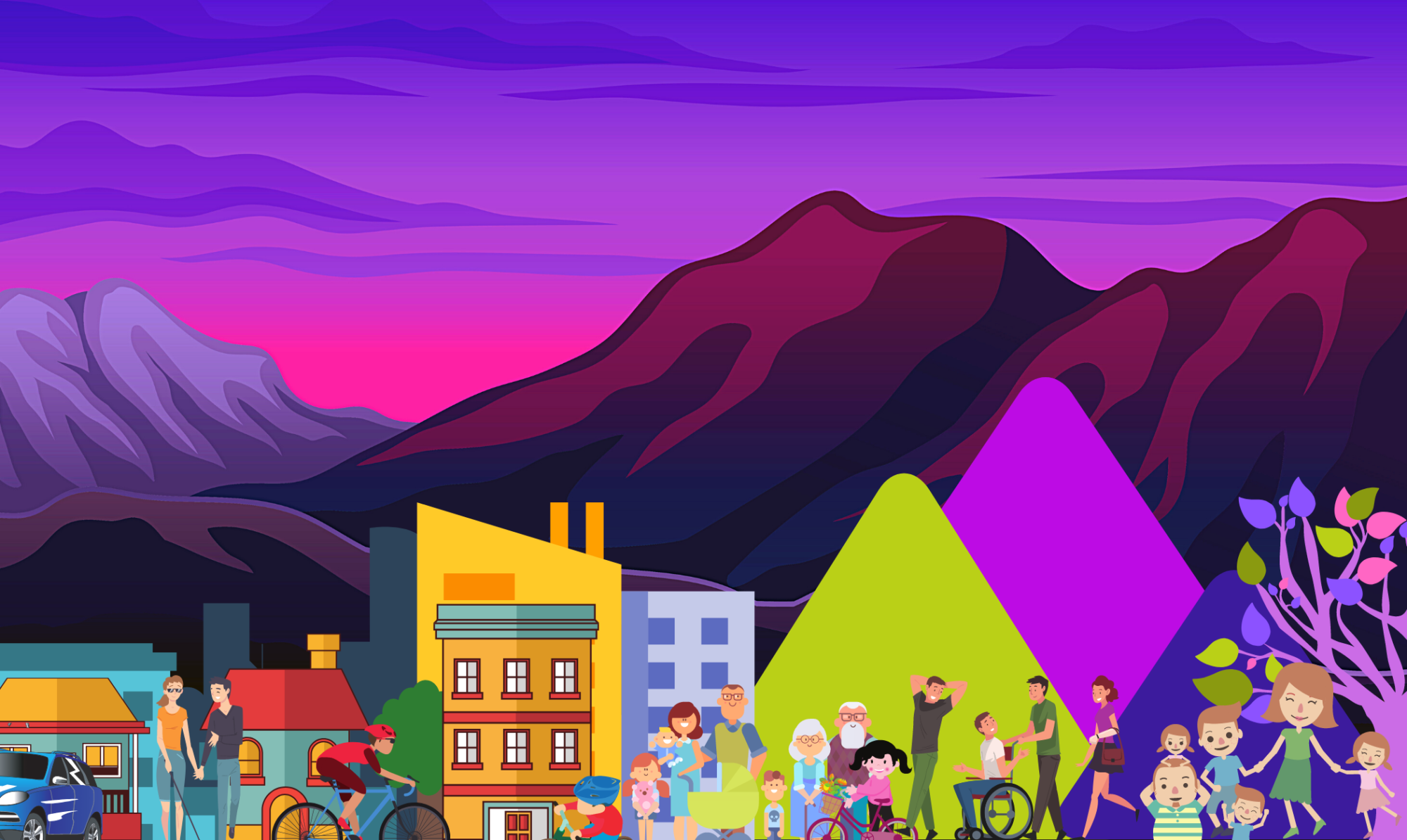Tamara Pastorelli interviews Renzo Andrich (Belluno)
With Renzo Andrich, engineer from Belluno, we find out more about the “Accessible environment, inclusive society” project, which is part of the #daretocare campaign. Its mission, Renzo explained, is to contribute to the spread of a culture of environmental accessibility, helping to make the world “a place in which no one, regardless of their physical or cognitive condition, encounter any more architectural or technological or social barriers that affect their mobility, limit their relationships, and prevent their full realization as persons and as citizens”.
Renzo lives in Belluno, at the foot of the Veneto Dolomites in Italy. This morning he went up into the mountains with one of his four children, he tells me. It’s easy to chat with him even without knowing each other, even at miles apart, even over the phone. “I am formally retired – he explains – but I continue to work. I’m involved in training, pandemic permitting, and I follow some projects, one of them with the WHO (World Health Organization). It involves a computer system that helps people understand if there are technical solutions to their autonomy problems”.
Renzo discovered the world of disability more than 50 years ago, “through friendship, profession and passion,” he explains. His first contact was in high school, thanks to a volunteer group in his town that had involved him in creating a network of relationships and friendships to include their family members with disabilities. Then… “After graduating with a degree in engineering, I spent 20 months of community service (that’s how long it lasted back then!) at the disability services in my hometown. After that, I joined Fondazione Don Gnocchi (Don Carlo Gnocchi Foundation – a non-profit organization) in Milan where, for 37 years, I coordinated the research and innovation activities on technological aids for disability. There, with my colleagues we experienced that choosing a technical aid is a job done with the person with a disability, not ‘for’”.
Renzo is also part of the international team of promoters and experts of the project “Accessible Environment, Inclusive Society”, launched on May 9 this year, during United World Week, and is part of the 2021-2022 #daretocare campaign, “People, planet and our ecological conversion”.
“This project aims to help spread a culture of environmental accessibility. The idea of an accessible environment – a world which no one, regardless of their physical or cognitive condition, encounter any more architectural or technological or social barriers that affect their mobility, limit their relationships, and prevent their full realization as persons and as citizens – can no longer be confined to utopia. Today, at the dawn of the third millennium, this dream must become a reality: this is a prerequisite for the realization of an inclusive society”, he firmly states.
This idea of an accessible environment goes well with the theme of integral ecology, the focus of #daretocare. “We believe that the person with disability can access an experience that brings a light on the world… For example, if we want to build a city and we involve people with various disabilities in the planning process, we will certainly make it barrier-free and more comfortable for everyone. Living the experience of limitations gives lights that help illuminate society”.
So, getting down to the concrete, how will the project be articulated? Renzo explains to me that they have combined the three characteristic steps of the #daretocare campaign: learn, act, share. Phase one: “learn”. Learning from lived experiences. The promoters of the project are currently searching and collecting experiences of people with disabilities as well as people involved in disability at various levels, from various parts of the world. These people, who in addition to solving specific problems, have also succeeded in planting a “seed of a united world” in their environment, marking a step of development towards a more inclusive community. “These experiences,” Renzo explains, “will form the main theme of a series of public webinars that will take place throughout 2021.”.
The 2021 calendar of “Accessible Environment, Inclusive Society” can be found on the events page of the UWP website.
Phase two: “act”. “The second phase will include an international event – tentatively in 2022 – dedicated to in-depth, interdisciplinary discussion and debate on these issues. An event that we would like to be both in-person and online, to be held simultaneously in various parts of the world, including co-designing specific initiatives to be carried out in the third phase of the project”. Third phase: “share” globally the co-designed actions, including through the United World Project’s “Pathway 2021-22”.
In short, the united world also includes the “dream” of a truly inclusive and accessible society, where each person can be the protagonist of their own choices, live with full dignity as equal citizens, count where needed on a sustainable assistance, without having to fight every day against environmental, cultural, political-economic, organizational barriers.
“For those who believe in the ideal of a united world, – concludes Renzo Andrich – this cannot remain a dream. It is a call to action, to creativity, to the mobilization of intelligence, to planning concrete, tangible, measurable solutions. It is a reality to be built, a reality which humanity has already achieved so much, and so many experiences are already making history”.
